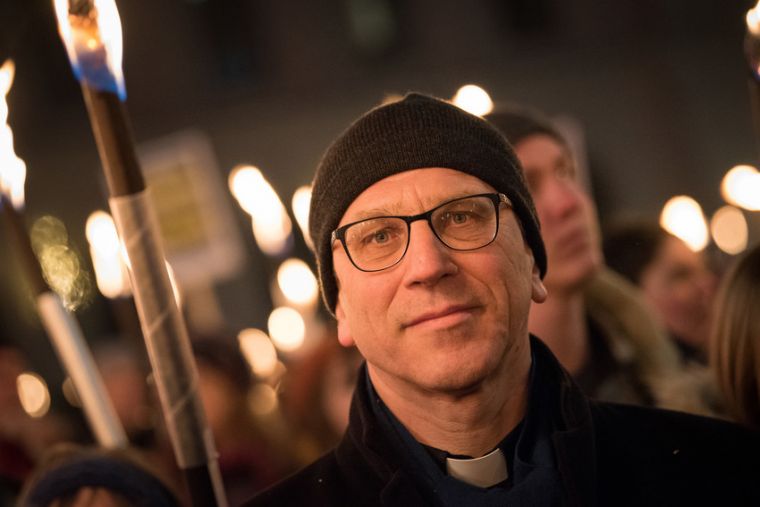Nuclear weapons are a 'sin' says head of World Council of Churches ahead of Davos summit
The general secretary of the World Council of Churches (WCC), the Revd Dr Olav Fykse Tveit, has spoken out strongly against nuclear weapons ahead of a trip tomorrow to Davos, Switzerland for a meeting of the World Economic Forum (WEF).
Tveit said that he 'can think of no greater antithesis to this vision of shared life and responsibility, no greater obscenity against it, than the continued existence of and political and social support for nuclear weapons...It is time to say together that this is wrong. It is time to call it a sin, both using and having nuclear weapons.'
He added: 'There is absolutely no moral justification whatsoever for using them. The time has come to say together that for the sake of the one humanity there is no moral ground on which we can keep them and threaten one another with them.'

Tveit was speaking in advance of the annual meeting of the WEF, which begins tomorrow and brings together heads of state and ministers, bankers, financiers and business people.
The theme for this year's 48th meeting is 'Creating a shared future in a fractured world'.
In a lengthy article published on the WCC website before the meeting, reported on Anglican News, Tveit writes: 'Nuclear weapons are designed to destroy entire cities, with every man, woman, child and every living creature in them. Moreover, they destroy the natural environment itself, their deadly radioactive legacy lingering and poisoning the very earth for millennia. They are the 'dumbest,' most evil weapons. They destroy what is built up for the common good through politics, through the economy, through civil society. Everything.
'Yet they were the only category of weapons of mass destruction that had not been banned by international treaty. Until now. The adoption last year of the Treaty on the Prohibition of Nuclear Weapons at the United Nations gives the nations of the world a salutary and long overdue opportunity to create a new normative, ethical and moral standard against nuclear weapons – against any development, testing, production, stockpiling, stationing, transfer, use or threat of use of such weapons – and for environmental remediation and assistance to the victims of nuclear weapons use and testing.
'Unfortunately, churches and Christians have also been among those providing tacit or explicit support for the maintenance of nuclear arsenals. We have ourselves taken shelter under the dark umbrella of "nuclear deterrence." But nuclear deterrence depends upon the willingness to actually use these weapons. I reject as incompatible with the most basic understandings of Christian responsibility in the world any willingness to contemplate the use of even a single nuclear weapon, under any circumstances.'
Last week, Pope Francis said that he was 'really afraid' about the danger of nuclear war and that the world now stood at 'the very limit'.
Asked by a journalist if he was worried about the possibility of nuclear war, the pope said: 'I think we are at the very limit. I am really afraid of this. One accident is enough to precipitate things.'
The WCC was founded in 1948 as an ecumenical fellowship which brings together 348 Protestant, Orthodox, Anglican and other churches, representing more than 560 million Christians in over 110 countries.











